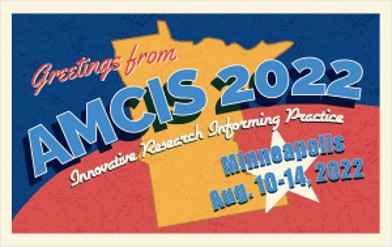SIG Service - Digital Services and Systems for a Human-Centered Future Society
Loading...
Paper Type
Complete
Paper Number
1263
Description
Pedagogical Conversational Agents (PCAs) offer the potential to increase educational equity worldwide by making learning accessible to all as a service for good, often enabled by artificial intelligence (AI). Yet, there are ethical challenges to the design and use of PCAs that hinder the achievement of individual and social goals. However, in addition to a multitude of directives on the ethical design of information systems, concrete resulting design features for PCAs still fall short in scientific literature. Furthermore, a human-centered ethical discussion that integrates future users’ involvement in ethical PCA design is scarce to find. Based on a co-creation process embedded in Design Science Research with a total of 40 students, we derive requirements and concrete features for ethically responsible PCAs and reflect them along with the OECD principles for trustworthy AI. Initial conceptual prototypes visualize exemplary instantiations.
Recommended Citation
Schlimbach, Ricarda and Khosrawi-Rad, Bijan, "Towards Ethical Design Features for Pedagogical Conversational Agents" (2022). AMCIS 2022 Proceedings. 1.
https://aisel.aisnet.org/amcis2022/sig_service/sig_service/1
Towards Ethical Design Features for Pedagogical Conversational Agents
Pedagogical Conversational Agents (PCAs) offer the potential to increase educational equity worldwide by making learning accessible to all as a service for good, often enabled by artificial intelligence (AI). Yet, there are ethical challenges to the design and use of PCAs that hinder the achievement of individual and social goals. However, in addition to a multitude of directives on the ethical design of information systems, concrete resulting design features for PCAs still fall short in scientific literature. Furthermore, a human-centered ethical discussion that integrates future users’ involvement in ethical PCA design is scarce to find. Based on a co-creation process embedded in Design Science Research with a total of 40 students, we derive requirements and concrete features for ethically responsible PCAs and reflect them along with the OECD principles for trustworthy AI. Initial conceptual prototypes visualize exemplary instantiations.
When commenting on articles, please be friendly, welcoming, respectful and abide by the AIS eLibrary Discussion Thread Code of Conduct posted here.



Comments
SIG Services